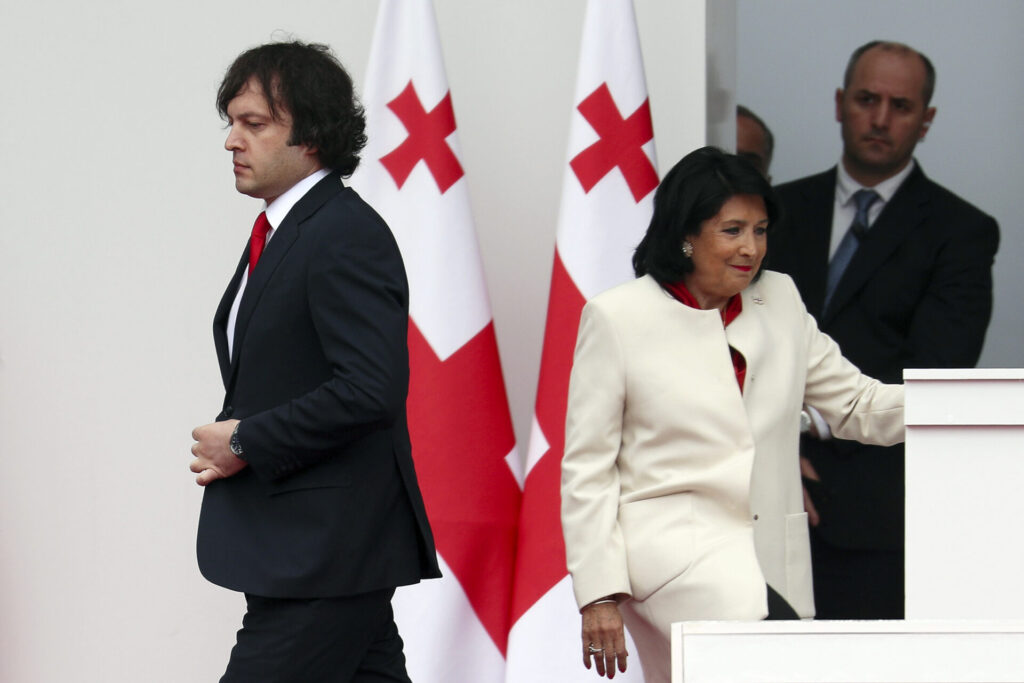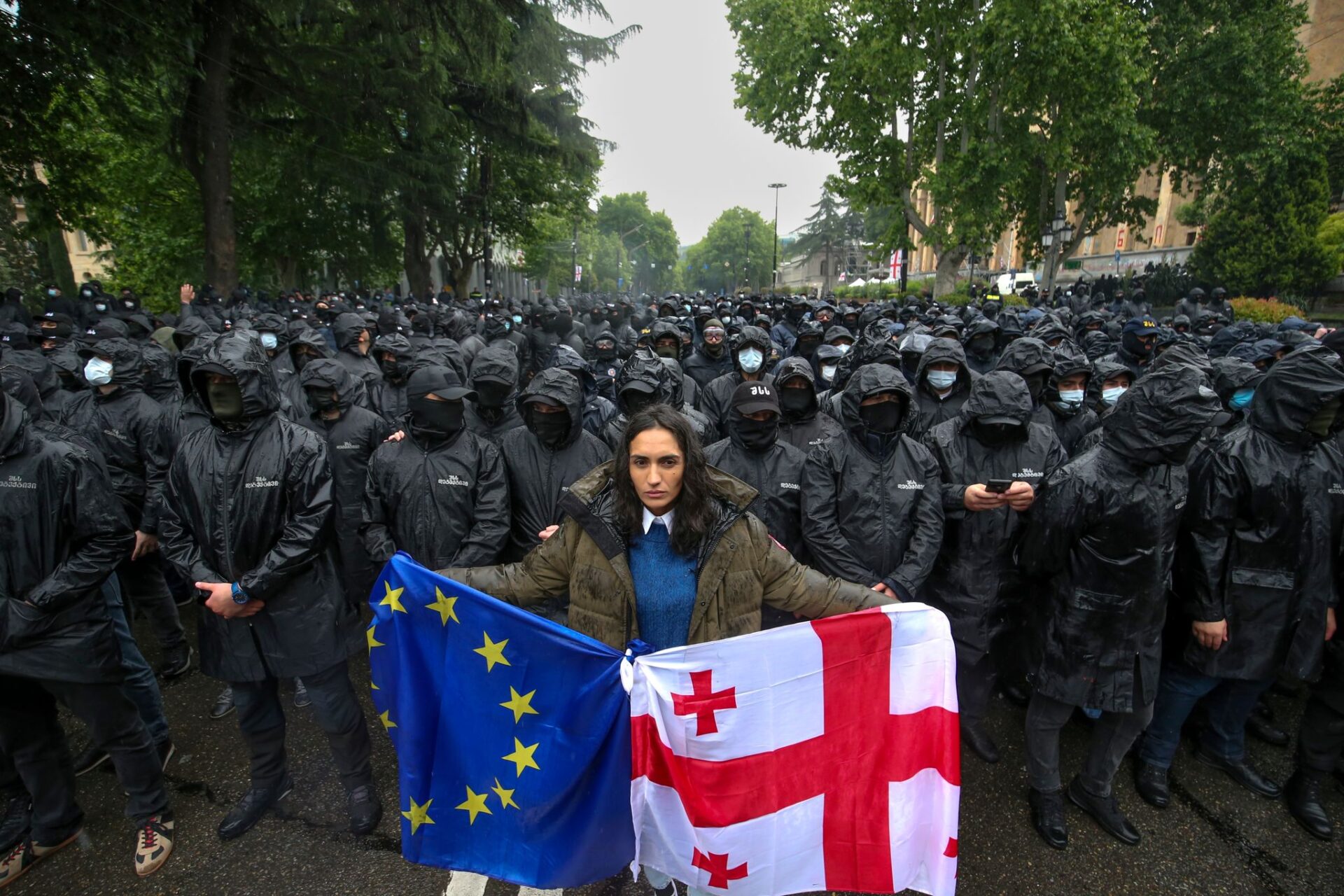On May 28, the Georgian parliament voted on the adoption of the so-called foreign agent law despite heavy criticism from the opposition, thousands of protesters on Georgian streets as well as stern words from the European Union.
Georgia’s pro-Western President Salome Zurabishvili had previously vetoed the law but was overruled by a simple majority in parliament. On Monday, the bill was signed into law and has now taken effect.
The governing nationalist Georgian Dream party, which holds the majority in parliament, is using the Law on Transparency of Foreign Influence to tighten the accountability of non-governmental organisations that receive more than 20 per cent of their funding from abroad. It justifies the law as making for greater transparency in the foreign funding of non-governmental organisations and boosting Georgian sovereignty.
Online registration of non-governmental organisations is to begin in two months, with fines imposed for infringements. Organisations that fail to register will have their assets confiscated, according to Tbilisi Mayor Kakha Kaladze. They will then be shut down.
Many organisations say they will refuse to comply and will take their case to the constitutional court and the European Court of Human Rights. Georgia joined the Council of Europe in 1999 and is subject to the European convention on Human Rights.
The pro-Western opposition criticises the law as “Russian” and fears political repression similar to that in the neighbouring country.
The European Union granted Georgia candidate status in late 2023. In light of the recent developments, EU chief diplomat Josep Borrell and the European Commission said the law represented a backslide on Georgia’s EU path. The US, holding long-standing relations with Georgia, also announced to review travel policies and their bilateral relations.
However, Georgian Prime Minister Irakli Kobakhidze explained that Georgia’s goal remains to join the European Union by 2030. Sanctions or penalties do not frighten the ruling party because it acts in the interests of the people and is elected, he said.
Thousands protest against Russian-style “agent” law
For weeks, tens of thousands in the former Soviet state have joined protests in the capital Tbilisi against the legislation. Critics accuse the Georgian government of having modelled the planned law on a Russian “agent” law in order to hinder the work of independent associations and media.
In Russia, numerous organisations and individuals are branded as “foreign agents,” a classification that often causes major problems. The controversial law was introduced in 2012 and is said to stigmatise and politically persecute recipients of payments from abroad, including human rights activists, journalists and artists.

Spat: PM says law good for “sovereignty”, president says it deters from EU path
Georgian Prime Minister Irakli Kobakhidze has accused President Salome Zurabishvili of “betrayal” for her veto of the law.
““It was the unity and reasonable steps of the people and their elected government that gave us the opportunity to maintain peace in the country for the past two years despite existential threats and multiple betrayals, including the betrayal of the president of Georgia”, Kobakhidze stated in a speech given on the Day of Georgian Independence – from the former USSR – which is celebrated on May 26.
But the president, too, found stark words for the prime minister, stating that “partnership and rapprochement with Europe are the true path to preserving and strengthening our independence and peace” and further adding that “those who sabotage and undermine this path trample upon and damage the peaceful and secure future of our country, hindering the path towards becoming a full member of the free and democratic world.”
After her overruled veto, the pro-Western president and former French diplomat Zurabishvili had refused to sign it into law. On Monday, Georgia’s parliamentary president Shalva Papuashvili, a member of nationalist Georgian Dream, signed the measure into law.
Zurabishvili has called on the demonstrators to focus their energy on collecting signatures for a referendum against the law. At the same time, she reminded them that a new parliament would be elected in the Black Sea republic on 26 October and that the people had the chance to get rid of the current government.
Support for EU membership among Georgians is high: According to a nation-wide poll, 89 percent of Georgians either “fully support” or “somewhat support” the joining of the European Union when asked in March.
Three steps backwards on the Georgian EU path
Pro-European forces criticise the law as a step backwards on the road to the EU: The European Union has announced consequences following the final adoption of the law that is set to tighten control over civil society in the candidate country. Washington, too, announced consequences such as visa bans and “comprehensive review of all U.S.-Georgia cooperation”.
“The EU has stressed repeatedly that the law adopted by the Georgian Parliament goes against EU core principles and values,” said EU High Representative for Foreign Affairs Josep Borrell and the EU Commission in a statement on May 28.
Specifically, the statement criticises the fact that the new law “leads to a backsliding” in at least three of nine areas that are important for the EU accession process. These are the fight against the polarisation of society and disinformation as well as progress in fundamental rights and the involvement of civil society organisations.
With regard to the protests against the law in Georgia, Borrell and the EU Commission stated: “We continue to stand with the Georgian people and recognise the choice of [an] overwhelming majority of them for a European future for their country.”
The EU and the US have been funding civil society development projects in Georgia on a large scale for a long time. The associated communication of Western values of freedom and sexual self-determination, for example, runs counter to conservative forces in society, which is heavily influenced by the Georgian Orthodox Church.
No “foreign agent” law in Bosnia and Herzegovina but in Kyrgyzstan
In Bosnia and Herzegovina, another EU accession candidate, the Republika Srpska (RS) authorities have recently abolished their proposed “foreign agent” law – which has also drawn criticism by the EU. In September 2023, the law had previously been adopted in a first reading in the RS entity assembly.
President of the Republika Srpska in Bosnia and Herzegovina, Milorad Dodik, stated on his X that the withdrawal was also due to RS’s commitment to the European path.
The majority-serb territory of Republika Srpska is one of two entities in Bosnia and Herzegovina. Bosnian-Serb leader Dodik has met with Russian President Vladimir Putin on numerous occasions since Russia’s invasion of Ukraine, awarding Putin with the highest medal of honour for his “patriotic concern and love” for RS in early 2023.
Russia has been accused of strategically supporting Dodik’s separatist policies to exploit divisions between the three main ethnic groups in the country.
A “foreign agents” law was passed in Kyrgyzstan, another former Soviet republic, in late March.
This article is part of the enr’s EU Elections Spotlight: Anti-EU currents. The content is based on news by agencies participating in the enr.
